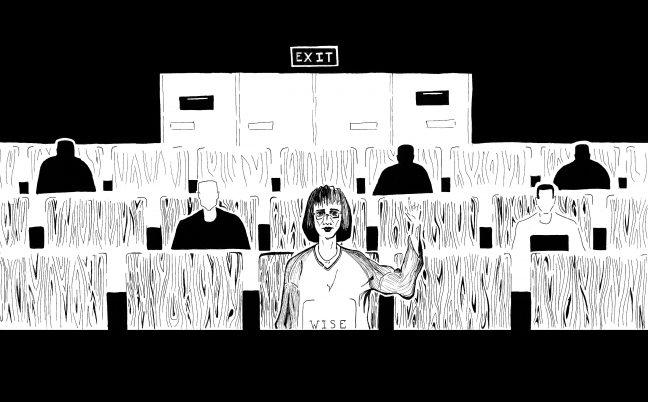The Gender and Women’s Studies Club hosted a panel Wednesday night to discuss the hardships women and LGBTQ+ students face in STEM fields at the University of Wisconsin.
The panel included Alleta Maier, a first-year physics graduate student, Liz Laudio, a fourth-year chemistry graduate student and Carin Loewen, an instructor in the genetics department.
The lack of diversity in the physics department among both staff and students is hard to ignore, Maier said.
“You walk into Chamberlin and you look at the Nobel Prize winners of physics and it’s white dude, white dude, white dude,” Maier said.
There is also a lack of discussions about diversity or gender queer people in the physics department, Maier said, which makes trans people like themselves feel “nonexistent for the most part.”
The gender disparity becomes worse the higher up you get in STEM fields, Loewen said. She pointed at several reasons for the disparity, with one being the exclusivity of elite jobs. Getting a jobs at the best labs depends on “who you know,” she said.
Once students make it into more advanced levels of STEM education, they continue to face barriers, Maier said. Consequently, many women and LGBTQ+ individuals in these fields experience imposter syndrome, or a constant feeling of not belonging.
Finding mentors, whether that’s professors or peers, and developing a support system can help with some of these struggles, Laudio said.
“I have a lot of hope that our generation is going to be able to fix a lot of the problems with graduate school,” Laudio said, “We are all much more equipped to talk about mental health and diversity than the people that are in the positions that we hope to hold.”
The panelists agreed that to fully address these issues, UW needs to take action. UW’s current diversity and inclusion statement does not do enough, Maier said.
“It sounds much prettier than it is,” Laudio said. “Diversity statements are huge — it’s something that’s being prioritized in science, it’s something that’s being prioritized in getting grants — but that doesn’t mean that the efforts that are happening are genuine.”
The lack of gender-neutral bathrooms is another issue UW needs to address, Maier said. They sometimes have to walk three buildings over to find a bathroom they can use.
As a teaching assistant, Maier said they have to address their identity on the first day of class because some students don’t think Maier’s trans identity is real. Some students have even left the class or refused to use Maier’s preferred pronouns, they said.
Hosting panels like the one held Wednesday and encouraging diversity and inclusion is especially important in STEM fields because it benefits science, Loewen said.
“Diversity is good in science, it leads to better science,” Loewen said. “Being able to collaborate and work with other people and add diversity is huge.”


